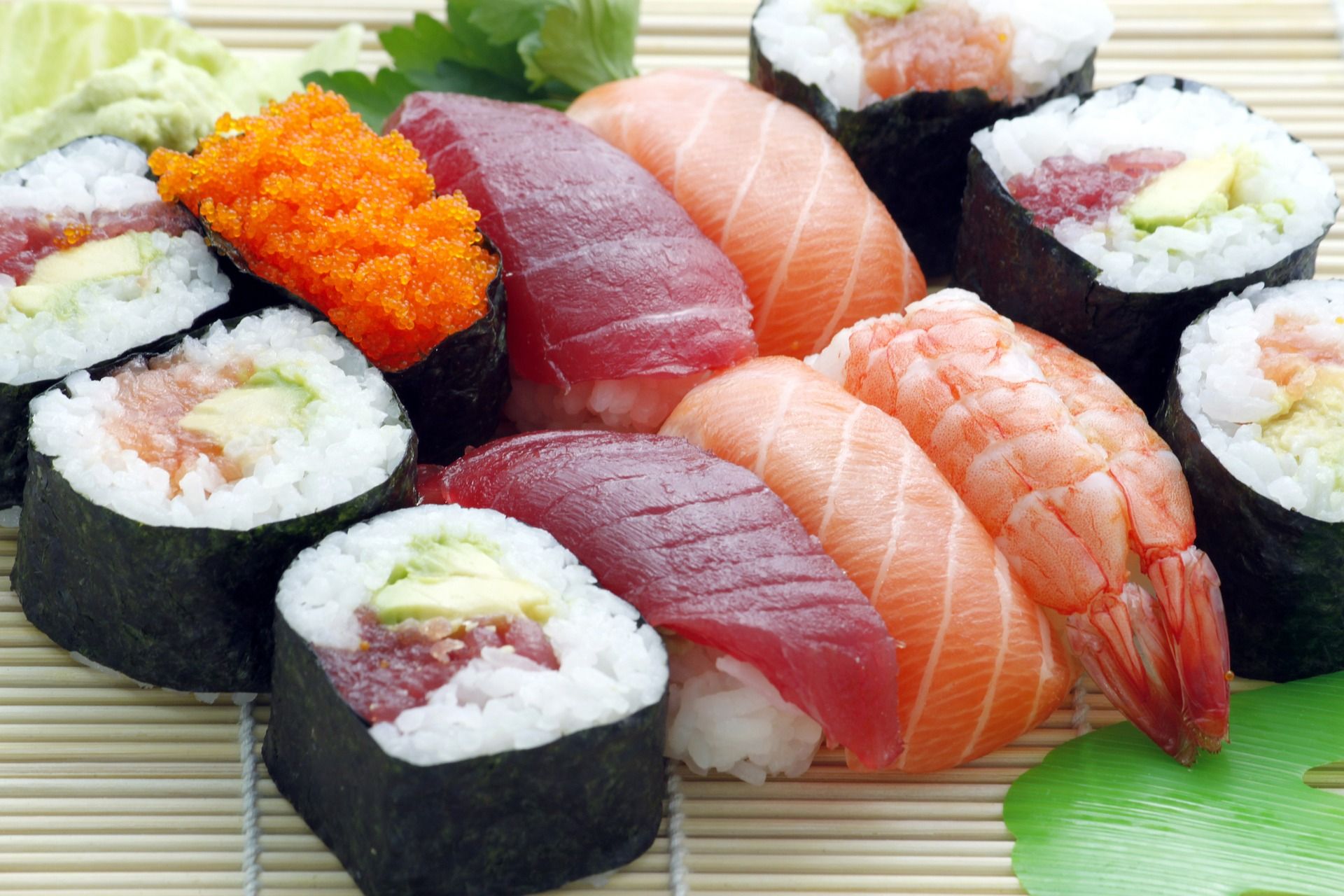It's a Japanese delicacy not typically associated with training, but a closer look at sushi shows it ticks every box for a post-workout feed
Sushi's availability is possibly its biggest pro - being stocked in supermarkets and grocery shops in addition to dedicated restaurants.
The bodybuilding world has a tendency to try and dictate what food gets eaten at certain times - think the chicken, broccoli and brown rice diet.
It doesn't need to be that basic. If you're a fan of this rice-based dish then rest assured it shuttles all the protein, carbs and micronutrients that you need to recover optimally.
Here are five key reasons why sushi is the best post-workout meal:
Proper protein
Everyone knows the importance of protein when it comes to building muscle and getting lean. After you've been working out, your fatigued muscle tissue needs repairing with the amino acids present in protein.
The most common form of protein found in sushi comes from fish, and a variety of seafood at that. Tuna, salmon, mackerel and prawn are all common kinds you'll find if you hit a sushi bar after the gym. What's more, fish is ridiculously rich in protein, meaning that you don't have to wolf down inordinate amounts to hit your target of 20-30 grams of protein per meal.
Quality carbs
After training, your levels of the muscle energy glycogen are severely depleted. What better way to stock back up on this than with the sticky white basmati rice found in sushi? fast-acting, sticky white rice.
Its rapid digestion shuttles the much-needed high GI carbs back into your muscle cells to also aid recovery. That means you can get back in the gym sooner rather than later.

Omega oils
Sushi is generally rich in omega 3 fatty acids, the anti-inflammatory compound predominantly found in oily fish. The benefits of omega 3s are endless, ranging from improved brain function to enhanced fatty acid metabolism and even an increased muscle protein synthesis.
Various veg
What sets sushi aside from typical combinations of protein and carbs is its vegetable portions. Not only do sushi rolls contain cucumber and bell pepper, but Maki rolls are usually wrapped in nori, a kind of edible seaweed.
Nori is rich in vitamin B12 - vital for your body’s energy production. Although found in most meats, nori could actually form the basis of a veggie and vegan meal plan.
Take your time
The traditional method of eating sushi could also bring about its own benefits. The meal normally comes with chopsticks, which means you'll take a little longer to finish. This is the 'tapas' effect of picking at a meal and taking your time rather than gorging on your food like a pig.
Although the ingredients are great for rapid absorption post-workout, that doesn’t mean you want to go wolfing your sushi down in seconds. Not only will you get hungry again much quicker, but savouring every bite is part and parcel of enjoying a sustainable diet. Your food doesn’t have to be boring.
An enjoyable diet equals adherence, and adherence equals results.



